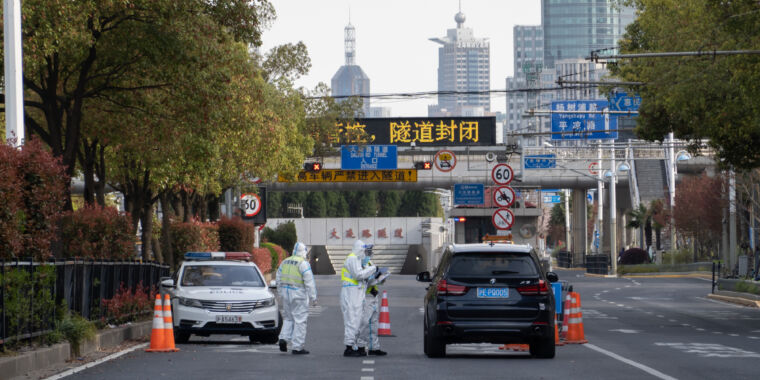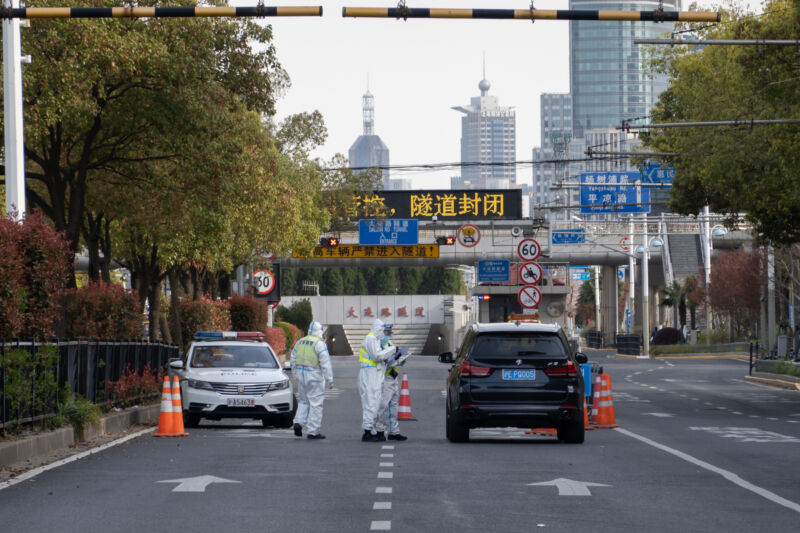

Coronavirus cases in China are spiking to record highs, leading officials in the Chinese financial hub of Shanghai to make the snap decision late Sunday to lock down the city of around 26 million people. For weeks, officials denied that they would institute lockdowns in response to rising cases.
But this month, the spread of the ultratransmissible omicron variant has driven China’s highest case rise in the pandemic, and Shanghai has seen some of the highest numbers. On Sunday, the country reported more than 6,000 new cases, with 3,500 of those in Shanghai. According to data tracking by The New York Times, the number of daily new cases has increased 233 percent in the past 14 days. The current case count is the highest yet for the country, which saw its previous peak in February 2020 when new cases reached just above 3,000 a day.
Starting March 28, Shanghai residents on the east side of Huangpu River entered a four-day home lockdown and mass testing campaign. From April 1 to 5, people on the west side will take their turn locking down and testing. Officials are aiming to test the entire population during the sequential lockdowns, sending health workers in white hazmat suits to residents’ front doors.
According to Reuters reporters in Shanghai, city officials closed bridges and tunnels Monday and restricted highway traffic. While people on the east side are locked in, people on the west side rushed to buy food and other staples. Supermarkets are reportedly running low on supplies, and delivery services have been swamped. Deliveries from outside the city are being left at checkpoints to prevent contact with the outside world, the Associated Press reported. Nonessential businesses and public transport are all closed.
Though the vast majority of the cases detected so far in Shanghai have reportedly been asymptomatic, health officials are particularly concerned about the spread of the virus. China has relatively low rates of vaccination among its elderly population, which is most vulnerable to severe disease. Moreover, the domestic vaccines used in China have lower efficacy than those used in western countries. Some fear that China could see the same devastatingly high fatality rates seen in a recent spike of cases in Hong Kong, which also relied on Chinese vaccines and had relatively low vaccination rates among the elderly.
In an interview Monday, former FDA commissioner Scott Gottlieb echoed the concern, saying, “When you don’t vaccinate your elderly population—the most vulnerable people in your society—you end up having very substantial impacts from the spread of this virus. And that’s, in fact, the risk that China faces right now.”